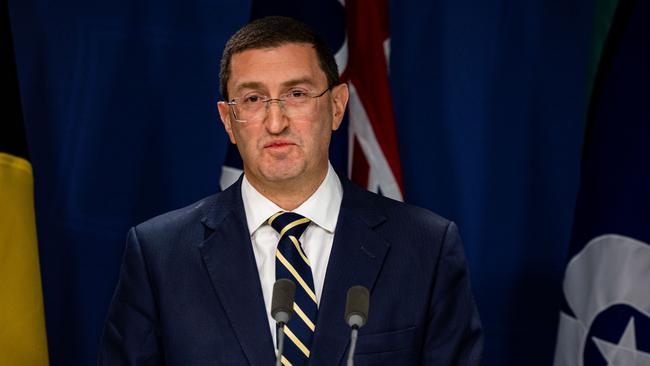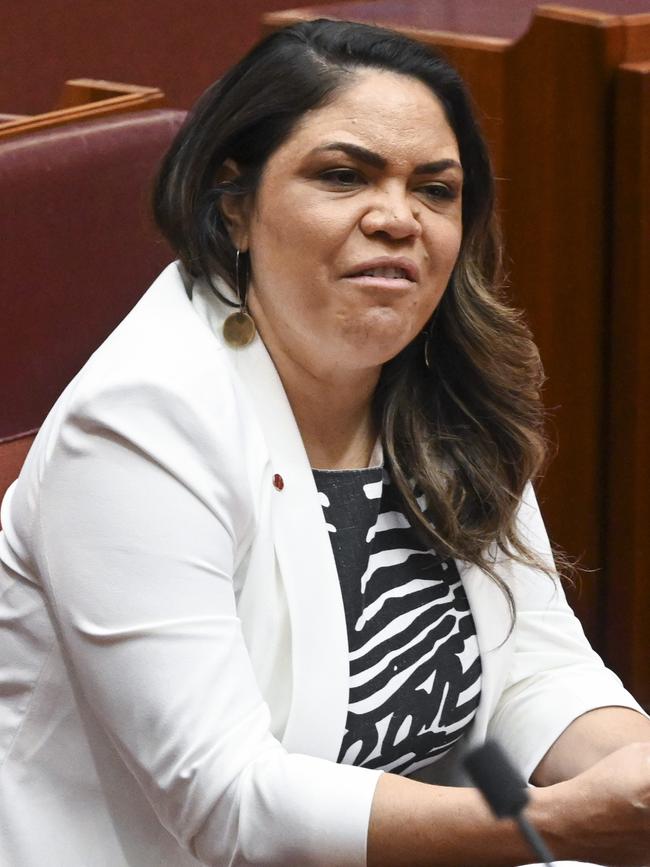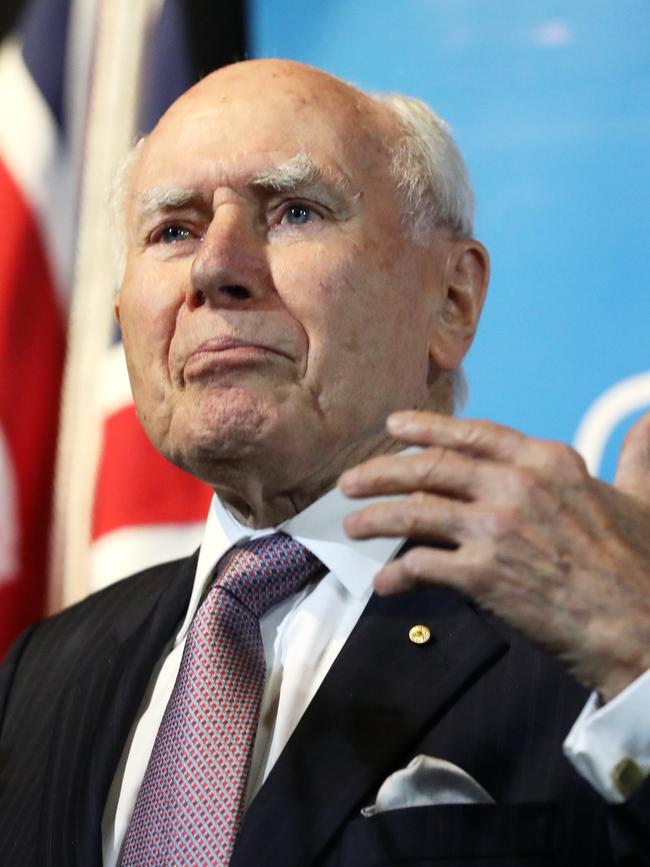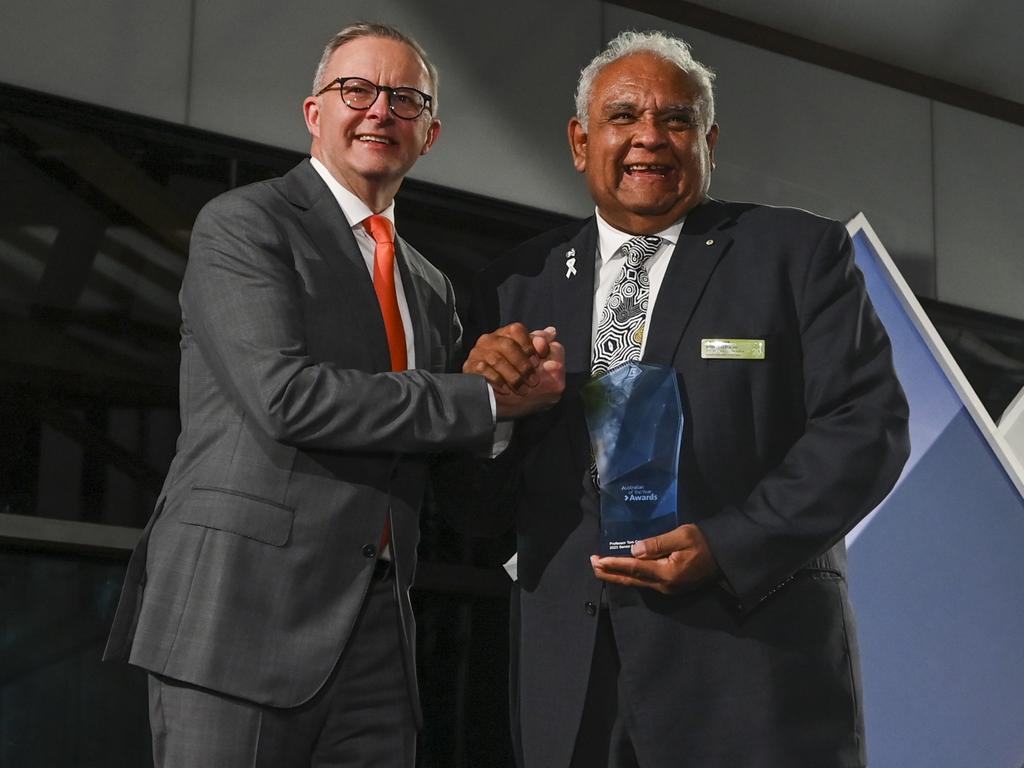Key Liberals lend support to an Indigenous governor-general
Key Liberal figures have backed Tom Calma’s call for an Indigenous Australian to be appointed, but Jacinta Price says race should not be considered.

Former Coalition Indigenous Australians spokesman Julian Leeser has endorsed an Aboriginal or Torres Strait Islander as the nation’s next governor-general, suggesting Tom Calma, Ken Wyatt, Marcia Langton and Patrick Dodson as viable options.
With David Hurley not expected to have his term as Governor-General extended beyond July, Professor Calma – a leading Indigenous rights campaigner and co-architect of the voice to parliament – told The Australian on Monday it was time to appoint a qualified and capable Indigenous person as the King’s representative.
Mr Leeser said Anthony Albanese should consult with Peter Dutton to ensure bipartisanship over a suitable Indigenous appointment and ensure it would assist the nation on its “path of reconciliation”.
Opposition Indigenous Australians spokeswoman Jacinta Price said race should not be considered in appointing a governor-general. “It should be based on finding the right candidate for the job, who is qualified and has the best interest of all Australians as their sole focus, regardless of their background,” she said.
“Australians have made it clear they do not want to be divided along the lines of race, yet the activist class continues to push for identity and race-based politics, undermining trust in our institutions and setting back the causes they claim to champion.”


Former prime minister John Howard did not make the case for an Indigenous appointment but said it was important that whoever took on the role was well qualified.
Former NSW Liberal premier Barry O’Farrell threw his support behind calls for a first Indigenous head of state, saying Professor Calma had “given voice to an idea whose time has come”. Mr O’Farrell, recently Australia’s high commissioner to India, said there had “always been an element of symbolism in federal and state vice-regal appointments, whether Doug Nicholls as the first Indigenous governor, Quentin Bryce as the first woman appointed or Isaac Isaacs as our first Australian-born governor-general”.
“As with Tom Calma’s call, these appointments sent strong messages nationally and internationally about the character of Australia. There’s no shortage of eminent Indigenous Australians who could be considered,” he said.
Mr Leeser, who argued for the next governor-general to be an Indigenous Australian on the day of the King’s coronation, said this was a “natural step in the evolution of the role of the crown in our country”.
“First, the person must be qualified,” he said. “The governor-general will take office before a general election. If the result is uncertain, the governor-general will be the umpire. So it is important he or she has extensive experience in government or in the law.
“Second, the person must be a unifying figure. That is the informal test that is applied to this role and it is even more important given this can be a step on our pathway to reconciliation.
“I also believe the Prime Minister should heed the lesson of the referendum – and that was the importance of consultation. Though not required by law, I believe (he) should consult with the Leader of the Opposition and make this a bipartisan moment.”
Mr Leeser said a number of Indigenous leaders would be qualified and were unifying figures. “Tom Calma, Ken Wyatt, Marcia Langton and, if health allowed, Pat Dodson all immediately spring to mind,” he said.
Mr O’Farrell said professors Calma and Langton would make strong candidates and there were options from the political sphere, including Labor MPs Marion Scrymgour and Linda Burney and former Liberal MP Ken Wyatt, while “outstanding Australians” like Noel Pearson or Jackie Huggins could “make significant contributions as head of state”.





To join the conversation, please log in. Don't have an account? Register
Join the conversation, you are commenting as Logout